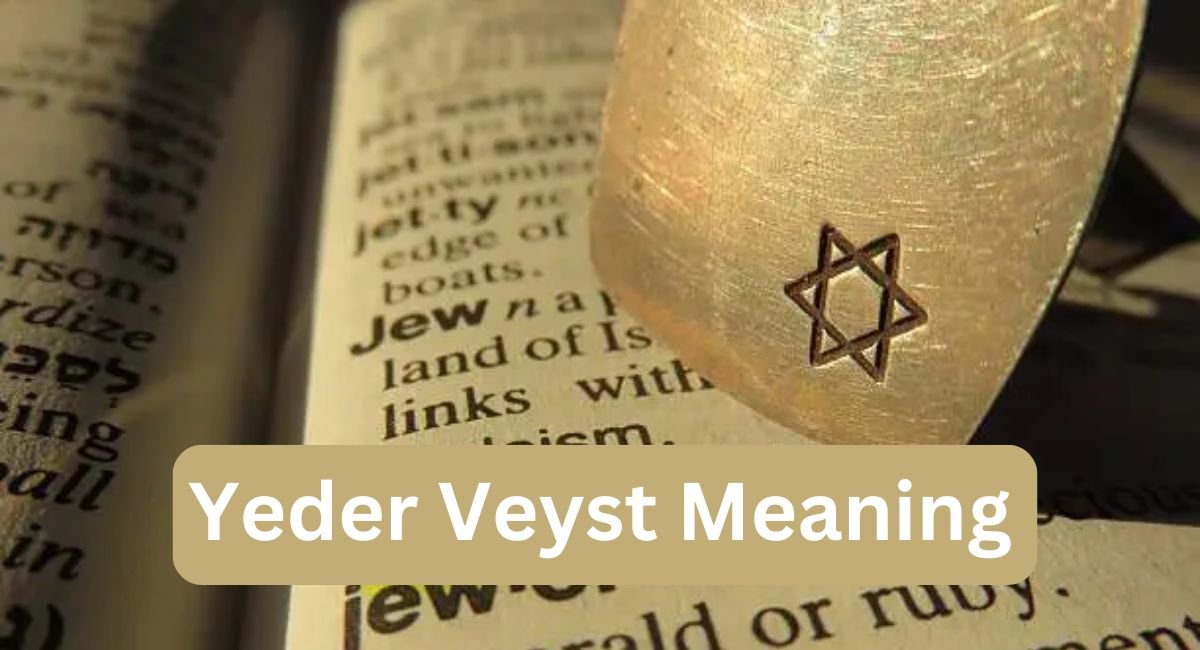Language is a powerful tool that reflects culture, history, and the values of its speakers. Yiddish, a historic language of the Ashkenazi Jewish community, is rich with expressions that convey a deep sense of tradition, humor, and wisdom. One such phrase is “Yeder veyst.” To understand the meaning of “Yeder veyst,” it’s essential to explore its translation, cultural context, and usage.
What Does “Yeder Veyst” Mean?
In Yiddish, the phrase “Yeder veyst” translates to “Everyone knows” or “Everybody knows.” It is a straightforward expression used to convey the idea that something is common knowledge or widely understood among a group of people.
The phrase is constructed from two Yiddish words:
- “Yeder” – meaning “every” or “everyone.”
- “Veyst” – a form of the verb “vissen,” which means “to know.”
When put together, “Yeder veyst” implies that the information or situation being referred to is universally acknowledged or evident without needing further explanation.
Cultural and Linguistic Context of “Yeder Veyst”
Yiddish is a language that developed among the Ashkenazi Jews in Central and Eastern Europe. It incorporates elements from Hebrew, German, Slavic languages, and others, creating a unique linguistic tapestry that reflects the diverse experiences of the Jewish diaspora.
The phrase “Yeder veyst” is typical of Yiddish’s practical and down-to-earth nature. Yiddish expressions often carry an undercurrent of irony or humor, reflecting the community’s historical resilience and perspective on life’s complexities. “Yeder veyst” can be used in various contexts to indicate a shared understanding, sometimes with a hint of irony or an acknowledgment of an unspoken truth.
Examples of “Yeder Veyst” in Use
Understanding how “Yeder veyst” is used in conversation can provide more insight into its meaning and connotations. Here are a few examples:
- In Everyday Conversation: A person might say, “Yeder veyst az Yossi iz a guter mentsh,” meaning “Everyone knows that Yossi is a good person.” This usage implies that Yossi’s good nature is well-known and unquestionable within the community.
- To State the Obvious: If someone comments on something that is widely accepted as fact, such as the difficulty of winter weather, they might say, “Yeder veyst az der vinter iz kalt,” meaning “Everyone knows that the winter is cold.” Here, “Yeder veyst” underscores the obviousness of the statement.
- With a Touch of Irony: “Yeder veyst” can also be used with irony or humor. For example, if someone makes a questionable decision, a friend might comment, “Yeder veyst du bist klug,” meaning “Everyone knows you are smart,” using the phrase ironically to suggest that perhaps the decision wasn’t the smartest.
The Significance of “Yeder Veyst” in Yiddish Culture
The phrase “Yeder veyst” encapsulates a key aspect of Yiddish culture – the sense of community and shared understanding. In tight-knit communities, where people often live closely together and share common experiences, the idea that “everyone knows” something reinforces the sense of belonging and collective consciousness.
Moreover, Yiddish often reflects a balance between sincerity and irony. The phrase can be both a straightforward statement and a vehicle for humor, depending on the context in which it’s used. This dual nature is characteristic of many Yiddish expressions, which often convey layers of meaning and emotion.
Similar Phrases in Other Languages
“Yeder veyst” has parallels in many other languages, each reflecting the concept of common knowledge or universal understanding:
- English: “Everybody knows” or “It’s common knowledge.”
- Spanish: “Todo el mundo sabe,” meaning “Everyone knows.”
- French: “Tout le monde sait,” which also translates to “Everyone knows.”
- German: “Jeder weiß,” directly translating to “Everyone knows.”
These phrases across different languages highlight a universal human experience – the reliance on shared knowledge and common understanding within a community or society.
Why Understanding Yiddish Phrases Like “Yeder Veyst” Matters
Learning and understanding phrases like “Yeder veyst” provides a window into Yiddish culture and history. Yiddish, as a language, carries with it the experiences, humor, and wisdom of the Ashkenazi Jewish people. It is a language that has survived adversity and continues to be a vibrant part of Jewish cultural identity.
For speakers and learners of Yiddish, phrases like “Yeder veyst” are more than just words; they are expressions of a shared heritage and worldview. They offer insight into how people perceive and interact with the world around them, often with a mix of realism, humor, and resilience.
FAQs
What does “Yeder veyst” mean?
“Yeder veyst” is a Yiddish phrase that translates to “Everyone knows” or “Everybody knows,” implying that something is common knowledge.
How is “Yeder veyst” used in conversation?
The phrase is used to indicate that a fact or statement is widely accepted or known within a community. It can also be used humorously or ironically.
What language does “Yeder veyst” come from?
“Yeder veyst” is a phrase from Yiddish, a language historically spoken by Ashkenazi Jews.
Can “Yeder veyst” be used ironically?
Yes, “Yeder veyst” can be used with a touch of irony, often to humorously suggest that what is “known” might not be entirely accurate or is stated in jest.
Is “Yeder veyst” similar to phrases in other languages?
Yes, it is similar to phrases like “Everybody knows” in English, “Todo el mundo sabe” in Spanish, and “Tout le monde sait” in French, all of which convey the idea of common knowledge.
Why is understanding Yiddish phrases like “Yeder veyst” important?
Understanding Yiddish phrases helps preserve and appreciate the cultural and historical context of the language and its speakers, offering insights into their experiences and worldview.
Conclusion
The phrase “Yeder veyst” is a simple yet profound expression in the Yiddish language. It captures the essence of shared knowledge and common understanding within a community, often with a touch of humor or irony. By exploring the meaning of “Yeder veyst,” we gain a deeper appreciation for Yiddish and the cultural context it represents.
Understanding such phrases allows us to connect with the rich tapestry of Yiddish-speaking communities, their traditions, and their perspectives on life. Whether used in sincerity or jest, “Yeder veyst” is a testament to the enduring power of language to convey meaning, culture, and connection.


